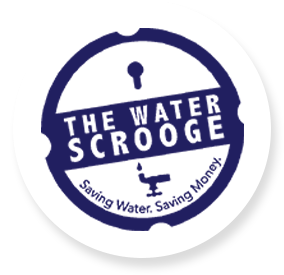4 min read
Multi-Family Properties: Pros and Cons of Management Options
![]() David Schwartz
Nov 10, 2016 9:00:00 AM
David Schwartz
Nov 10, 2016 9:00:00 AM

Great property management is vital to a multi-family community's long-term success, but it can also be a stressful, time-consuming project, especially when your units number into the hundreds.
Managing a property doesn't leave a lot of downtime.
You need to build positive relationships with your tenants so they feel they can bring issues to your attention and have more respect for the property. You need to effectively collect rent by monitoring late payments and ensuring no one is charged more than they should be.
You have to track your expenses and income in order to stay in business and plan improvements that attract better with a lower turnover rate. Plus, you'll need to deal with filling units, signing leases, and maintenance requests.
Property Management Solutions
There are two ways to approach property management: managing your property yourself or hiring someone else to do it. Each method has its pros and cons.
In order to decide whether to do it yourself or whether you should hire a company to manage for you, you should consider a few things:
- First, take stock of your assets. Can you manage the number of buildings and units you have or will you be pulling your hair out trying to run everything?
- Second, consider your location. Do you live close to your properties? A lot of landlords purchase property where the deals are and that’s not always close to home. If the drive is too far to make almost daily, consider a property manager.
- Lastly, decide how much time you’re able to commit. Property management is a large undertaking that takes a lot of time, relationship building, and management skills.
The Pros and Cons of Property Management Services
The Advantages
1. They know the job.
If you’re a landlord taking a stab at running your own property, there can be a sharp learning curve. Those who specialize in property management have it down. They’re capable of handling all of the daily tasks in rhythm while others are following a checklist.
2. They know the right people.
Hiring staff or contractors is important to the job. Without knowing the right people to add to the payroll or negotiate with, you end up doing a lot of work yourself and that leads to more damages and more corrections. This can include maintenance technicians, screeners, and others.
Property management services have Rolodexes full of people that can be called for a wide variety of tasks.
3. They throw their weight around.
Just like with hiring contractors, larger companies have good reputations for providing work. For utilities and bulk purchases, the same holds true.
A strong property manager is able to throw their weight around, finding you better deals on fuel, building materials, or amenities, simply because they’re going to be buying a lot of them.
4. They have multiple people working for you.
Property management companies have teams of individuals who specialize in different departments. This saves you the trouble of searching for answers or needing to hire out.
The Disadvantages
1. They can be expensive.
These companies will charge a percentage-based fee for every unit. That’s what keeps them working for you.
There are other charges, however, that they don’t usually highlight.
For instance, most property management services will charge an origination fee. When a new tenant moves in, you’ll fork over up to a month’s rent for them being able to fill it and the cost of paperwork handling.
By charging a fee for new tenants, it removes their incentive to reduce your turnover rate. Many want tenants to leave because they know they’ll get a bigger paycheck when someone else moves in.
2. They can charge you for vacant units.
While not all property managers do this, it’s important to examine how many units are filled. Some companies will charge for all the units, even if they have no tenant.
A simple audit can keep the company straight and ensure you’re not losing money because of someone’s lack of integrity.
3. They may own property themselves.
If they’re not holding your property as their priority, you’re not going to do as well as they could. This is especially true of managers who own their own buildings elsewhere.
The conflict of interest can cost you money and hurt your credibility as a landlord.
4. They require better screening than your tenants.
Property managers require a thorough vetting—more so than the tenants.
With potentially hidden charges and the chance for them to damage your rental reputation, it’s vital that you find the company that matches your needs. This takes a lot of time and effort but can be well worth the work.
The Pros and Cons of Self-Managing
The Advantages
1. You work for free.
It doesn’t cost anything except time for you to get the job done. You work on your own schedule, only spending money when you decide you can’t manage it.
2. You have total control.
No one is responsible for the property but you, and that means you can there’s no debating with your decisions. If you want to remove a unit to give tenants an in-house gym, have at it. If you want to renovate something else, it’s your call.
3. You can try new techniques that others may not.
With no one managing the property for you, you can experiment with better ways to handle tasks that others may not want to try.
For instance, a lot of property managers won’t use Craigslist or other free posting sites because they can’t argue for the marketing fees they charge you.
You have the ability to see how effective these methods can be and potentially find some great ways to help manage your property.
The Disadvantages
1. You only have so much time.
No matter how hard you work, there are only so many hours in the day. This means running through your daily grind without much flexibility when other problems arise.
If you’re working with hundreds of units, it can be downright impossible.
2. You may not have the required skills.
Few landlords are also accountants, lawyers, marketers, or contract specialists. This isn’t terrible, it just means you’ll need to find those who can do those jobs, whether contracted or hired.
A property management company has these individuals already on the payroll or on speed dial for assistance.
3. You will be stressed.
Tenants' problems are never ending and in order to keep them happy, you’ll be spending a lot of time finding resolutions for them. The extra hours working are just one hit you’ll take. You’ll also have to deal with the stress that comes from being the individual responsible for fixing it.
4. You need to learn all the laws and codes for your area.
While this isn’t innately bad, it means a lot of work and a large risk.
Even if you hire a lawyer for the lease, there are day-to-day operations that require your input. If you make the wrong call, you could be finding yourself in court.
Many landlords will hire legal counsel, but the cost of these services can quickly deplete your bank account if you’re using them often.
Deciding How You’ll Manage
As a landlord, understanding what’s required for property management is essential. Self-management can teach you those skills while keeping you busy. Property managers specialize in those skills, but they can be expensive.
Try out both and see what works best for you. There are benefits to each, but it all depends on how you want your property managed.


